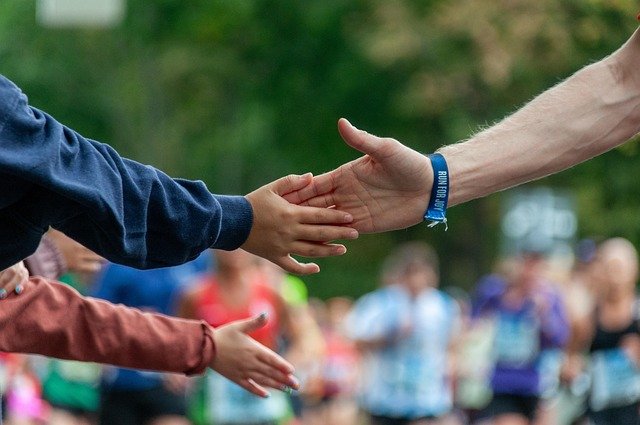Senior Speed Dating: A Fun Way for Older Adults to Meet New People
Senior speed dating has become an increasingly popular way for older adults to meet new people and potentially find romantic connections. This article explores how senior speed dating works, where to find events, the benefits for participants, and how seniors can prepare for a successful experience.

As people age, their social circles often shrink due to retirement, relocation, or the loss of loved ones. Traditional dating methods may feel uncomfortable or outdated, leaving many seniors wondering how to meet new people. Senior speed dating has emerged as a popular solution, combining the excitement of meeting multiple potential companions in one evening with the comfort of a structured format. These events cater specifically to older adults, creating an age-appropriate environment where participants can be themselves without pressure or judgment.
How Does Senior Speed Dating Work?
Senior speed dating follows a straightforward format designed to maximize introductions while minimizing awkwardness. Participants typically register in advance for an event, which is often organized by age range to ensure compatibility. Upon arrival, attendees receive a name tag and a scorecard. The event organizer arranges seating so that one group remains stationary while the other rotates after each timed conversation, usually lasting between three and eight minutes.
During each interaction, participants engage in light conversation to gauge mutual interest. Topics often include hobbies, family, travel experiences, and personal interests. After each round, attendees mark their scorecards to indicate whether they would like to see that person again. At the end of the evening, organizers collect the cards and notify participants of mutual matches within 24 to 48 hours, typically via email. This process removes the pressure of immediate rejection and allows people to express interest privately.
Where Can You Find Senior Speed Dating Events?
Senior speed dating events are becoming increasingly available across the United States, particularly in metropolitan areas. Many events are organized by professional dating services that specialize in age-specific matchmaking. Local senior centers, community organizations, and retirement communities frequently host these gatherings as part of their social programming. Additionally, some restaurants, wine bars, and event venues partner with organizers to provide appropriate settings for these occasions.
Online platforms have made it easier to discover upcoming events in your area. Websites like Meetup, Eventbrite, and specialized senior dating services regularly post speed dating opportunities with detailed information about age ranges, locations, and registration requirements. Local newspapers and community bulletins also advertise these events. Some organizations offer both in-person and virtual speed dating options, expanding accessibility for those with mobility concerns or who live in rural areas.
What Are the Benefits of Speed Dating for Seniors?
Speed dating offers numerous advantages for older adults seeking companionship. The structured format eliminates much of the anxiety associated with traditional dating by providing clear guidelines and time limits. Participants meet multiple people in one evening, significantly increasing their chances of finding compatible matches compared to one-on-one dates. The age-appropriate setting ensures that attendees share similar life stages and experiences, fostering more meaningful conversations.
The time-efficient nature of speed dating appeals to busy seniors who may have family obligations, volunteer commitments, or active social calendars. Unlike online dating, which can involve lengthy messaging exchanges that lead nowhere, speed dating provides immediate face-to-face interaction. This allows participants to assess chemistry, body language, and conversational compatibility in real time. Additionally, the group setting feels safer than meeting strangers alone, particularly for those new to the dating scene after many years.
How Can Seniors Prepare for a Speed Dating Event?
Successful speed dating requires minimal preparation but benefits from thoughtful planning. Start by choosing comfortable, appropriate attire that makes you feel confident without being overly formal. Arrive a few minutes early to familiarize yourself with the venue and settle any nerves. Prepare a mental list of conversation topics or questions that go beyond superficial small talk, such as asking about favorite hobbies, travel destinations, or books.
Bring a positive attitude and realistic expectations. Remember that not every conversation will lead to a match, and that’s perfectly normal. Practice active listening and maintain eye contact to show genuine interest in each person. Keep conversations light and avoid discussing sensitive topics like health problems, financial concerns, or negative past relationships during initial meetings. Most importantly, be yourself rather than trying to impress others with exaggerated stories or accomplishments.
What Unique Challenges Do Seniors Face in Speed Dating?
While speed dating offers many benefits, older adults may encounter specific challenges. Physical limitations such as hearing difficulties can make conversation in noisy venues challenging. Some seniors feel self-conscious about their appearance or worry about being judged compared to their younger selves. Others struggle with the fast-paced nature of the format, finding it difficult to make meaningful connections in such brief interactions.
Emotional baggage from previous relationships, including long marriages that ended in divorce or widowhood, can complicate new romantic pursuits. Some participants may not be seeking romantic relationships at all but rather companionship or friendship, leading to mismatched expectations. Technology barriers can also pose problems, as some seniors are less comfortable with email communication for receiving match notifications. Additionally, limited event availability in smaller communities may require travel to participate.
Despite these challenges, many seniors find that the benefits far outweigh the obstacles. Organizations continue to adapt their events to address these concerns, offering quieter venues, clearer communication about event expectations, and additional support for first-time participants. The key is approaching the experience with an open mind and understanding that building new connections takes time, patience, and sometimes multiple attempts before finding the right match.




